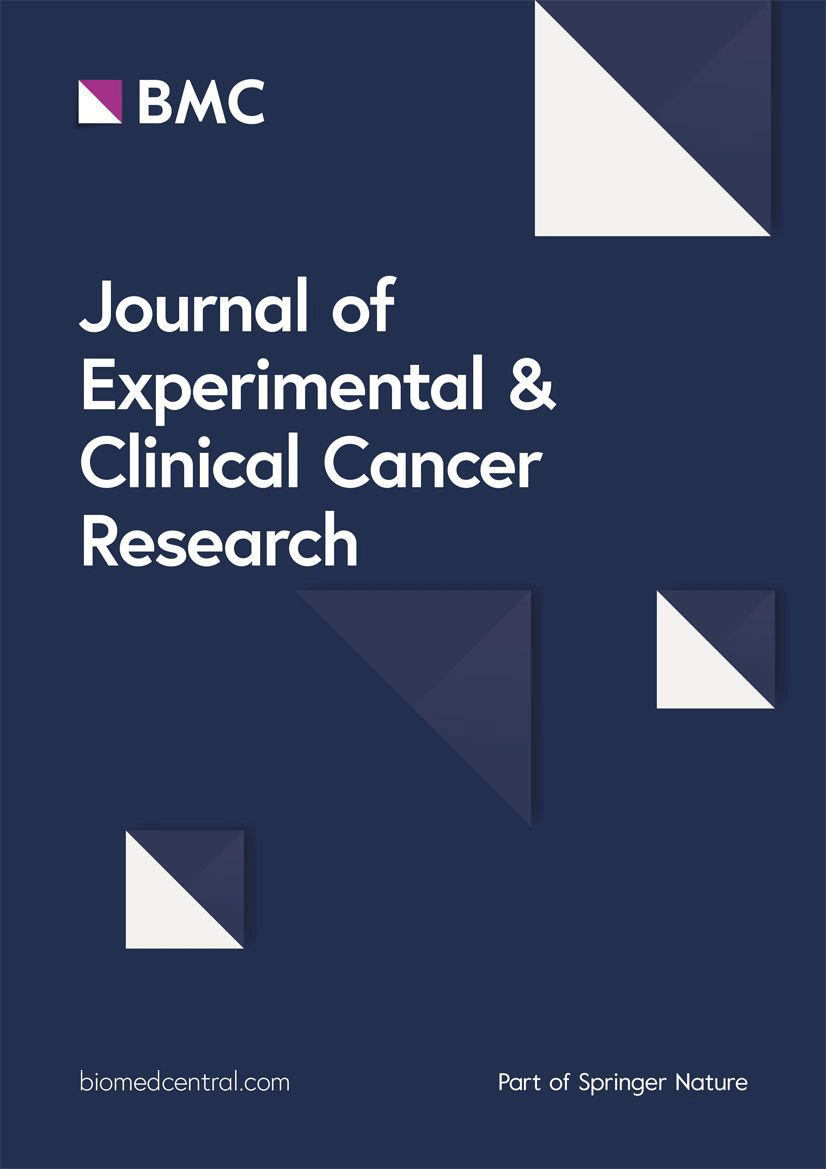AMPK-HIF-1α signaling enhances glucose-derived de novo serine biosynthesis to promote glioblastoma growth
IF 11.4
1区 医学
Q1 ONCOLOGY
Journal of Experimental & Clinical Cancer Research
Pub Date : 2023-12-15
DOI:10.1186/s13046-023-02927-3
引用次数: 0
Abstract
Cancer cells undergo cellular adaptation through metabolic reprogramming to sustain survival and rapid growth under various stress conditions. However, how brain tumors modulate their metabolic flexibility in the naturally serine/glycine (S/G)-deficient brain microenvironment remain unknown. We used a range of primary/stem-like and established glioblastoma (GBM) cell models in vitro and in vivo. To identify the regulatory mechanisms of S/G deprivation-induced metabolic flexibility, we employed high-throughput RNA-sequencing, transcriptomic analysis, metabolic flux analysis, metabolites analysis, chromatin immunoprecipitation (ChIP), luciferase reporter, nuclear fractionation, cycloheximide-chase, and glucose consumption. The clinical significances were analyzed in the genomic database (GSE4290) and in human GBM specimens. The high-throughput RNA-sequencing and transcriptomic analysis demonstrate that the de novo serine synthesis pathway (SSP) and glycolysis are highly activated in GBM cells under S/G deprivation conditions. Mechanistically, S/G deprivation rapidly induces reactive oxygen species (ROS)-mediated AMP-activated protein kinase (AMPK) activation and AMPK-dependent hypoxia-inducible factor (HIF)-1α stabilization and transactivation. Activated HIF-1α in turn promotes the expression of SSP enzymes phosphoglycerate dehydrogenase (PHGDH), phosphoserine aminotransferase 1 (PSAT1), and phosphoserine phosphatase (PSPH). In addition, the HIF-1α-induced expression of glycolytic genes (GLUT1, GLUT3, HK2, and PFKFB2) promotes glucose uptake, glycolysis, and glycolytic flux to fuel SSP, leading to elevated de novo serine and glycine biosynthesis, NADPH/NADP+ ratio, and the proliferation and survival of GBM cells. Analyses of human GBM specimens reveal that the levels of overexpressed PHGDH, PSAT1, and PSPH are positively correlated with levels of AMPK T172 phosphorylation and HIF-1α expression and the poor prognosis of GBM patients. Our findings reveal that metabolic stress-enhanced glucose-derived de novo serine biosynthesis is a critical metabolic feature of GBM cells, and highlight the potential to target SSP for treating human GBM.AMPK-HIF-1α 信号增强葡萄糖衍生的丝氨酸新生物合成,促进胶质母细胞瘤生长
癌细胞通过代谢重编程进行细胞适应,以维持在各种压力条件下的生存和快速生长。然而,脑肿瘤如何在天然丝氨酸/甘氨酸(S/G)缺乏的脑部微环境中调节其代谢灵活性仍是未知数。我们在体外和体内使用了一系列原代/干细胞样和已建立的胶质母细胞瘤(GBM)细胞模型。为了确定S/G剥夺诱导代谢灵活性的调控机制,我们采用了高通量RNA测序、转录组分析、代谢通量分析、代谢物分析、染色质免疫沉淀(ChIP)、荧光素酶报告、核分馏、环己亚胺酶和葡萄糖消耗。在基因组数据库(GSE4290)和人类 GBM 标本中分析了其临床意义。高通量 RNA 序列和转录组分析表明,在 S/G 剥夺条件下,GBM 细胞中的丝氨酸新合成途径(SSP)和糖酵解被高度激活。从机理上讲,S/G剥夺可迅速诱导活性氧(ROS)介导的AMP激活蛋白激酶(AMPK)活化以及AMPK依赖的缺氧诱导因子(HIF)-1α稳定和转录活化。活化的 HIF-1α 反过来又会促进 SSP 酶磷甘油酸脱氢酶(PHGDH)、磷丝氨酸氨基转移酶 1(PSAT1)和磷丝氨酸磷酸酶(PSPH)的表达。此外,HIF-1α 诱导的糖酵解基因(GLUT1、GLUT3、HK2 和 PFKFB2)的表达会促进葡萄糖摄取、糖酵解和糖酵解通量,从而为 SSP 提供燃料,导致丝氨酸和甘氨酸的新生物合成、NADPH/NADP+ 比率以及 GBM 细胞的增殖和存活率升高。对人类 GBM 标本的分析表明,过表达的 PHGDH、PSAT1 和 PSPH 水平与 AMPK T172 磷酸化和 HIF-1α 表达水平以及 GBM 患者的不良预后呈正相关。我们的研究结果揭示了新陈代谢压力增强的葡萄糖衍生的丝氨酸新生物合成是 GBM 细胞的一个关键代谢特征,并突出了靶向 SSP 治疗人类 GBM 的潜力。
本文章由计算机程序翻译,如有差异,请以英文原文为准。
求助全文
约1分钟内获得全文
求助全文
来源期刊
CiteScore
18.20
自引率
1.80%
发文量
333
审稿时长
1 months
期刊介绍:
The Journal of Experimental & Clinical Cancer Research is an esteemed peer-reviewed publication that focuses on cancer research, encompassing everything from fundamental discoveries to practical applications.
We welcome submissions that showcase groundbreaking advancements in the field of cancer research, especially those that bridge the gap between laboratory findings and clinical implementation. Our goal is to foster a deeper understanding of cancer, improve prevention and detection strategies, facilitate accurate diagnosis, and enhance treatment options.
We are particularly interested in manuscripts that shed light on the mechanisms behind the development and progression of cancer, including metastasis. Additionally, we encourage submissions that explore molecular alterations or biomarkers that can help predict the efficacy of different treatments or identify drug resistance. Translational research related to targeted therapies, personalized medicine, tumor immunotherapy, and innovative approaches applicable to clinical investigations are also of great interest to us.
We provide a platform for the dissemination of large-scale molecular characterizations of human tumors and encourage researchers to share their insights, discoveries, and methodologies with the wider scientific community.
By publishing high-quality research articles, reviews, and commentaries, the Journal of Experimental & Clinical Cancer Research strives to contribute to the continuous improvement of cancer care and make a meaningful impact on patients' lives.

 求助内容:
求助内容: 应助结果提醒方式:
应助结果提醒方式:


